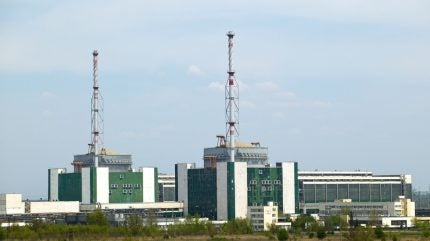
US nuclear company Westinghouse has received a permit to begin transitioning Bulgaria’s Kozloduy nuclear power plant onto fuel the company has produced, as the European nation looks to move away from reliance on Russian supplies.
Bulgaria’s Interim Prime Minister Dimitar Glavchev and Acting Energy Minister Vladimir Malinov visited the site, where Westinghouse is scheduled to build unit 7 and unit 8 of the power plant.
According to World Nuclear News, Malinov told reporters “we plan to gradually load the first 43 cartridges of fresh nuclear fuel… in May”, and said that alternative suppliers include French company Framatome, which will be contracted to provide fuel for unit 6.
In 2022, Bulgaria’s National Assembly voted to accelerate the process of securing an alternative to Russia as a supplier of nuclear fuel. The two units at Kozloduy are both Russian-designed VVER-1000 reactors. As part of the acceleration process, the National Assembly signed a ten-year contract with Westinghouse to fabricate and deliver VVER-1000 fuel supplied from Westinghouse’s fabrication site in Västerås, Sweden.
Kozloduy currently provides around 34% of the country’s electricity, and the two units have recently undergone refurbishment and life extension programmes to enable operations to continue for an additional 30 years.
Westinghouse has also been manufacturing fuel for Soviet-era VVER-440 reactors in Ukraine.

US Tariffs are shifting - will you react or anticipate?
Don’t let policy changes catch you off guard. Stay proactive with real-time data and expert analysis.
By GlobalDataWhile the West has not placed sanctions on Russia’s nuclear industry, nations are looking to move away from the aggressor’s supply chains, with Westinghouse’s manufacturing capabilities playing a large role. However, not all western nations are aligned in their approach; for instance, last year Framatome entered a joint venture with TVEL, a subsidiary of Russian state-owned company Rosatom, to manufacture VVER (water-water energetic reactor) fuel elements.
Speaking to Power Technology at the 26th World Energy Congress, Laurence Piketty, deputy general administrator at the French Atomic Energy Commission, said that France “will have civil nuclear relationships with all countries”, stressing the importance of this for research and development of the nuclear industry.



